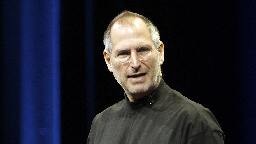Steve Jobs Rigged The First iPhone Demo By Faking Full Signal Strength And Secretly Swapping Devices Because Of Fragile Prototypes And Bug-Riddled Software



finance.yahoo.com
• Steve Jobs faked full signal strength and swapped devices during the first iPhone demo due to fragile prototypes and bug-riddled software.
• Engineers got drunk during the presentation to calm their nerves.
• Despite the challenges, Jobs successfully completed the 90-minute demonstration without any noticeable issues.
You are viewing a single comment
Slow down your thinking and consider this: why would any practical person fully develop something without getting market feedback and understanding demand?
This is by the book “Preto-typing”. You can frame it as lying, but the reality is Apple had faith that all of the “faked” features in the demonstration would be fully developed before launch.
IBM did something similar before voice-to-text existed. They faked the technology during market research and discovered that people didn’t enjoy speaking to their computer as much as initially thought. It showed them that they could better invest that money elsewhere.
It would make zero sense and be a foolish use of capital to fully develop a product that complex and expensive without understanding market preferences.
This is a non-story, rage-bait headline.
99.5% of all on-stage demos have fake elements. This shouldn’t be surprising to anyone.
It’s also been a known thing ever since the demo occurred. This isn’t news, it’s been a known thing for basically the last 15 years.
The problem in all this for me, is that examples like Jobs are pointed to as examples of why this should be done (your entire post basically), and then we have examples like Elizabeth Holmes and Theranos who basically couldn't deliver the technology and kept the "lie" going.
How does one know they can eventually deliver? In your post, you basically assume the problem is solvable with capital. With some promised tech (like Theranos), at what point does "there is a necessary need to gauge the publics interest in a product to evaluate if capital needs to be invested in this space" turn into fraud if the product turns out to be unattainable? (Think cancer cures, limb regeneration, etc)